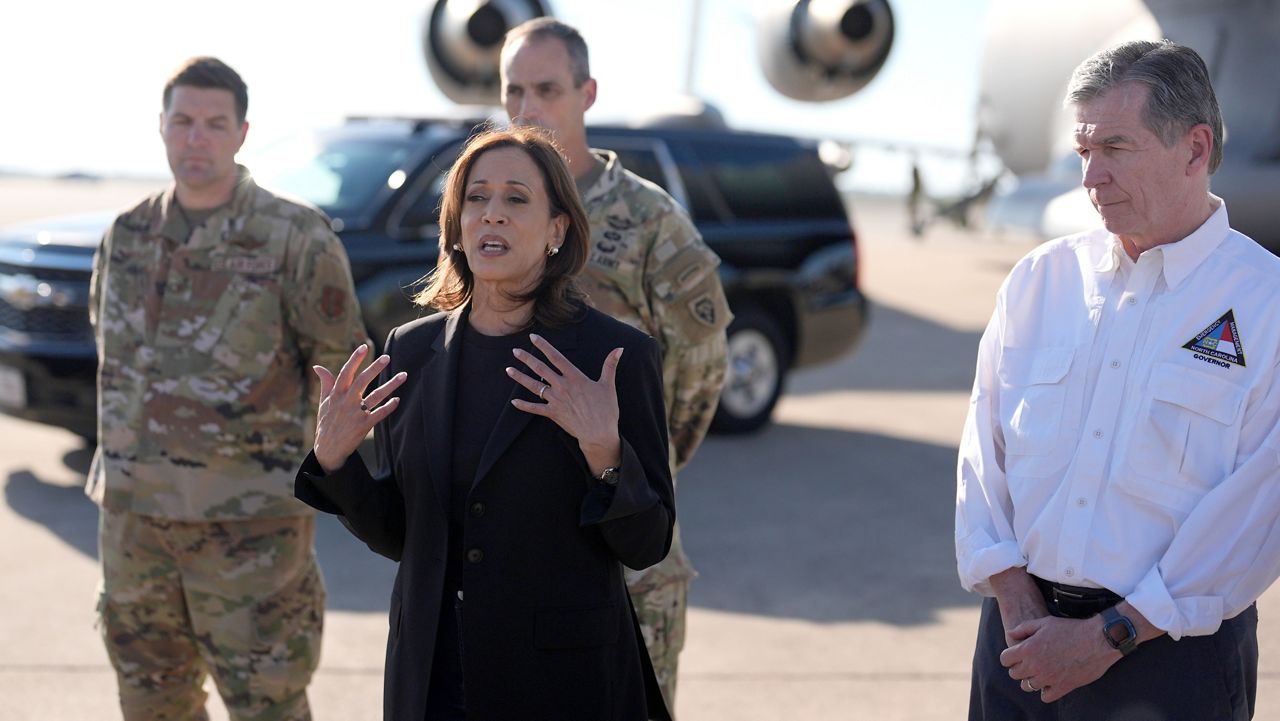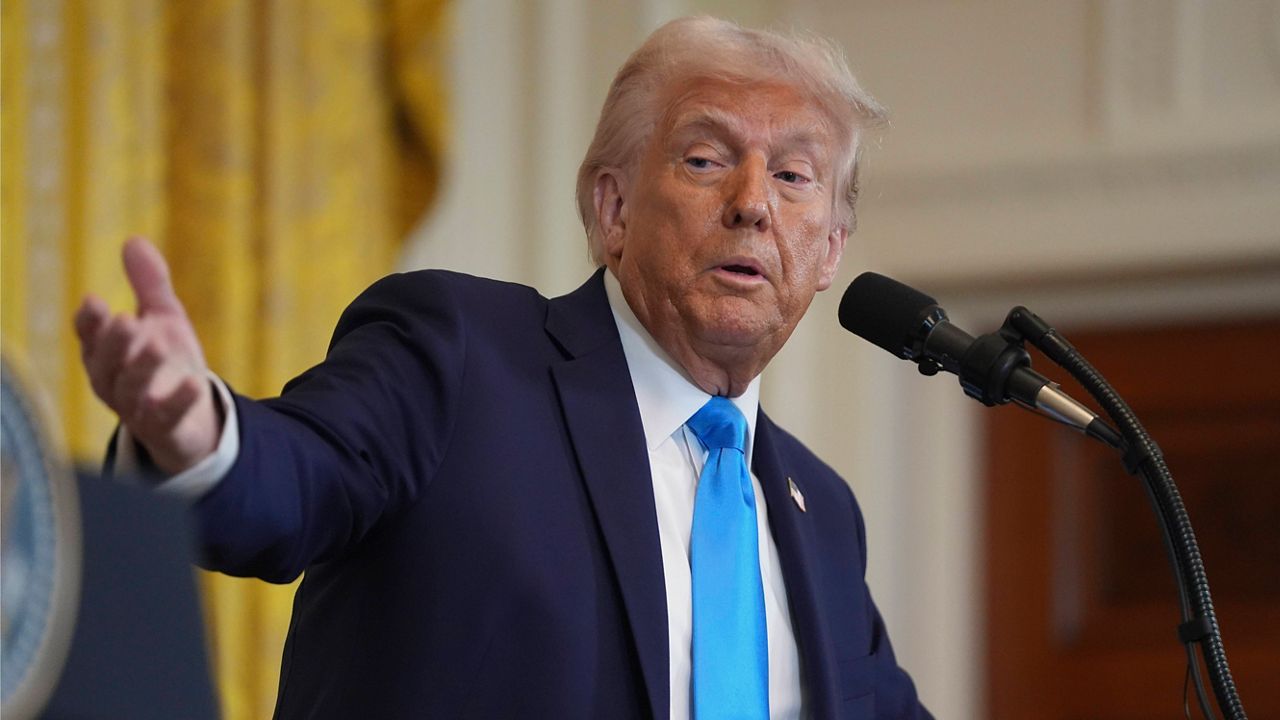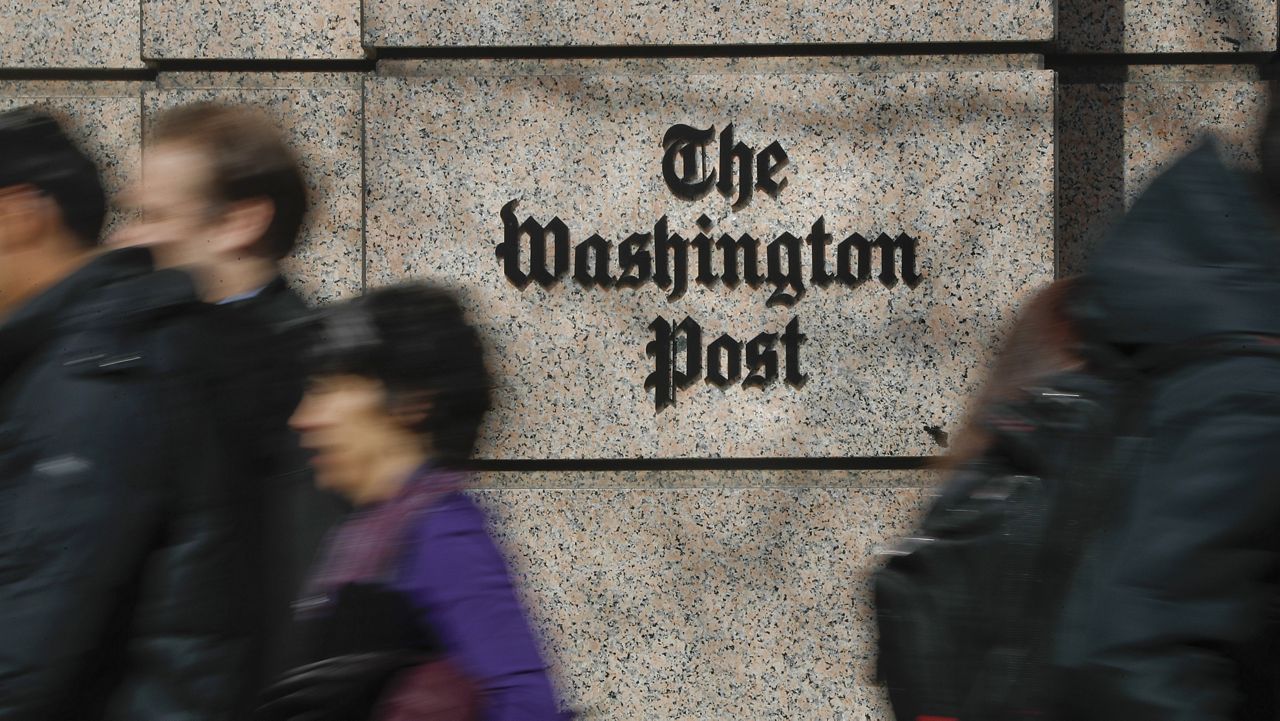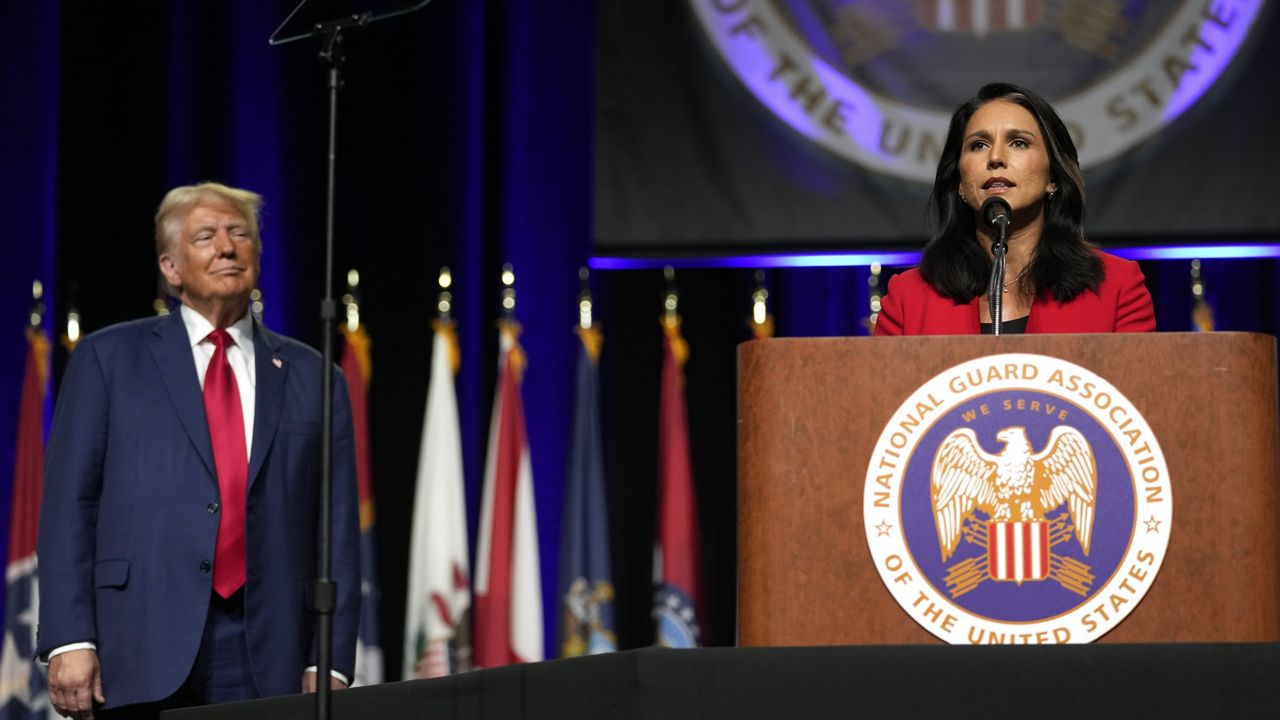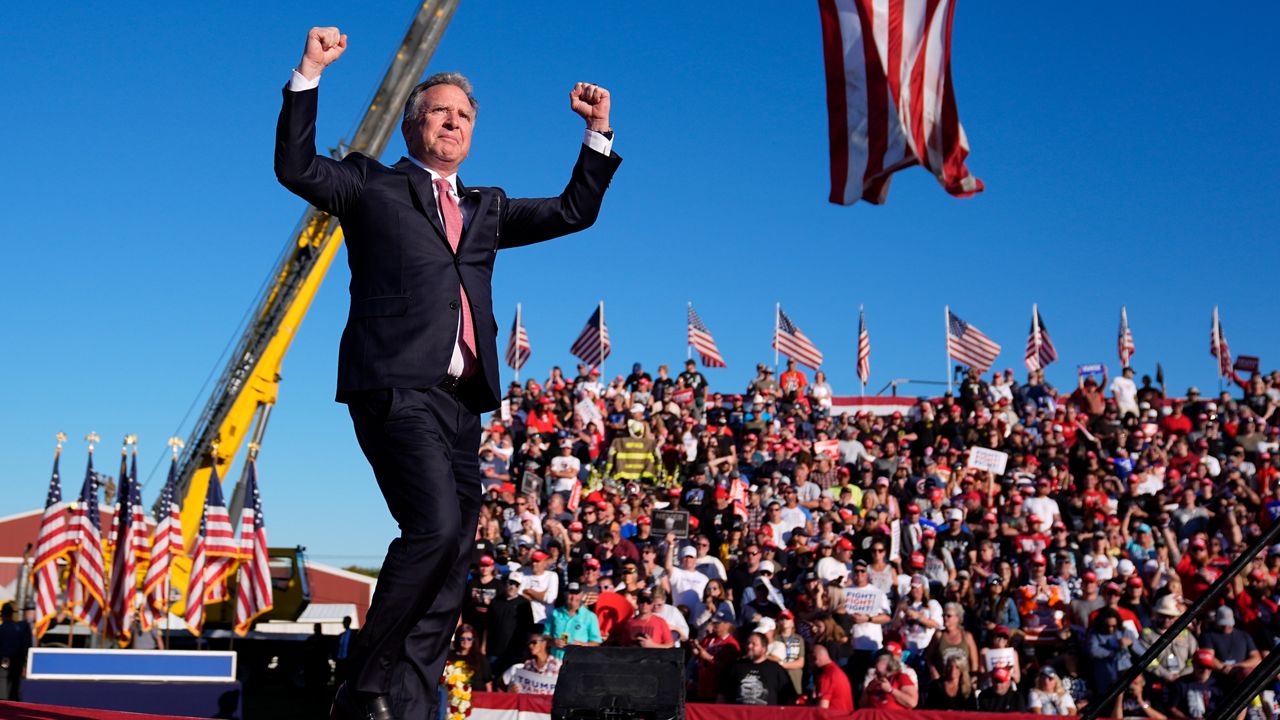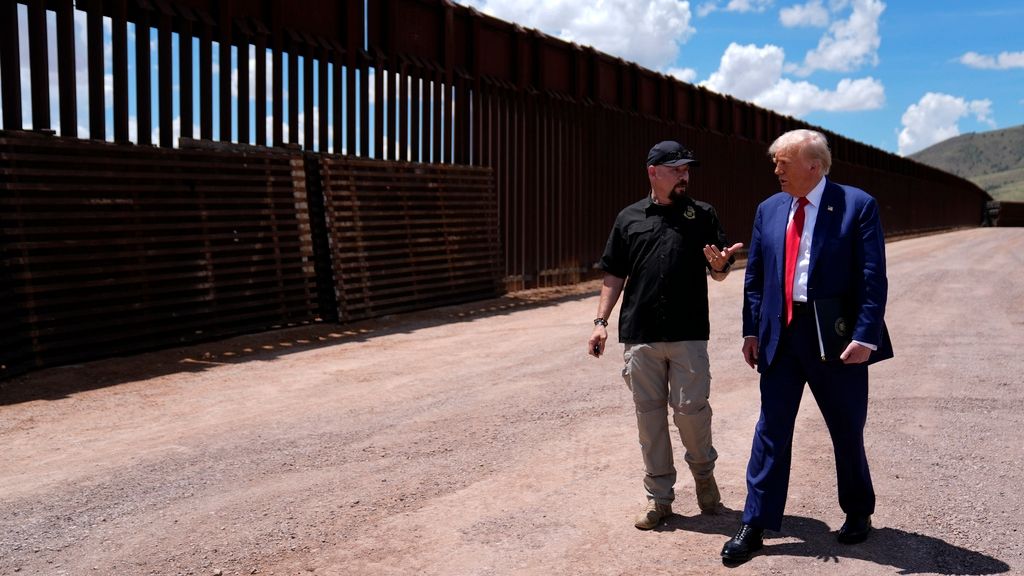In a wide-ranging interview with long-running CBS News program “60 Minutes” that aired Monday night, Vice President Kamala Harris spoke about owning a Glock firearm, while her running mate, Minnesota Gov. Tim Walz, revealed that the Democratic nominee urged him to be “a little more careful” when speaking, given some notable flubs and misrepresentations.
Harris was also pressed about some of her changing policy positions and proposals if she wins the White House in November, and spoke candidly about the worsening situation in the Middle East, Russia’s invasion of Ukraine — as well as the decision by her opponent, former President Donald Trump, to pull out of a similar interview opportunity afforded to him by America’s most-watched newsmagazine.
Here are a few takeaways from the interview:
Veteran correspondent Scott Pelley opened up Monday night’s program by explaining what went down between Trump’s campaign accepting the interview before pulling out last week, breaking what he called a half-century of tradition dating back to Richard Nixon and Hubert Humphrey in 1968.
Pelley said that they initially agreed to both do the interview last week at Trump’s Mar-a-Lago estate in Florida and meet in Butler, Pennsylvania, the site of his first assassination attempt and where he rallied last weekend.
“Unfortunately last week, Trump canceled,” he explained, noting that the Republican’s campaign “offered shifting explanations” for why they did so.
“First, they complained that we would fact-check the interview. We fact-check every story,” Pelley continued, adding that Trump “needed an apology” for an interview with “60 Minutes” correspondent Lesley Stahl in 2020, which he ended abruptly.
Noting that Trump recently declined Harris’ invitation to debate later this month, “tonight may have been the largest audience for the candidates between now and Election Day.”
Sitting with correspondent Bill Whitaker, who conducted the interview, Harris urged viewers to instead listen to what Trump says at his rallies.
“If he is not going to give your viewers the ability to have a meaningful, thoughtful conversation, question and answer with you, then watch his rallies,” she said. “You’re going to hear conversations that are about himself and all of his personal grievances.”
“What you will not hear is anything about you, the listener. You will not hear about how he is going to try to bring the country together, find common ground,” she continued, adding: “That is why I believe in my soul and heart, the American people are ready to turn the page.”
When asked about President Joe Biden’s border policies and whether the administration should have cracked down sooner, the vice president called immigration a “longstanding problem” and blamed Congress for inaction.
“It's a longstanding problem, and solutions are at hand,” Harris said. “And from day one, literally, we have been offering solutions.”
Biden did send an immigration bill to Congress on his first day in office in 2021, while also reversing some of Trump’s immigration actions early on. The country has seen major surges at the U.S.-Mexico border in recent years, though those numbers have dropped significantly in recent months since Biden signed a sweeping executive order limiting asylum.
When pressed by Whitaker if the administration should have acted sooner and if it was a mistake to roll back Trump’s orders, Harris pointed to the lower numbers of crossings and urged Congress to take action. The vice president has pledged to put forward and sign the bipartisan border security bill that was negotiated in the U.S. Senate earlier this year but was scuttled amid pressure by Trump and House Republicans.
“We need Congress to be able to act to actually fix the problem,” Harris said.
The vice president was firm in saying that she would not meet with Russian President Vladimir Putin in a bilateral setting to negotiate the end of the war with Ukraine.
“Ukraine must have a say in the future of Ukraine,” Harris said.
“There will be no success in ending that war without Ukraine and the U.N. Charter participating in what that success looks like,” she said.
Harris, who met with Ukrainian President Volodymyr Zelenskyy in Washington at the end of last month, said her “support to the people of Ukraine is unwavering.”
“I’ve been proud to stand with Ukraine,” she said. “I will continue to stand with Ukraine, and I will work to ensure Ukraine prevails in this war, to be safe, secure and prosperous.”
When asked if she would support the expansion of the North Atlantic Treaty Organization to allow Ukraine membership, which the country has pushed for dating back to Russia’s 2014 invasion and annexation of Crimea, Harris demurred, saying it’s an issue to “deal with if and when it arrives at that point.”
“Right now, we are supporting Ukraine’s ability to defend itself against Russia’s unprovoked aggression,” she said, charging that under Trump, “Putin would be sitting in Kyiv right now.”
Turning to another thorny foreign affairs issue, Harris affirmed that Israel is a key ally in the Middle East, but declined to say whether the Biden administration still has influence over Prime Minister Benjamin Netanyahu’s actions in Gaza and beyond — and if the Israeli leader is a close ally of the United States.
"I think with all due respect, the better question is do we have an important alliance between the American people and the Israeli people?” Harris asked. “And the answer to that question is yes.”
Harris affirmed Israel’s right to safety, noting the United States helped the country “defend itself against 200 ballistic missiles” from Iran. “When we think about the threat that Hamas, Hezbollah presents — Iran — I think that it is, without any question, our imperative to do what we can to allow Israel to defend itself against those kinds of attacks.”
"The work that we do diplomatically with the leadership of Israel is an ongoing pursuit around making clear our principles, which include the need for humanitarian aid, the need for this war to end, the need for a deal to be done which would release the hostages and create a cease-fire,” the vice president said.
Also appearing in the interview was Harris’ running mate, Minnesota Gov. Tim Walz, who has made notable gaffes in travel to China, misstating his military record and other issues. He recounted that the vice president told him to get a better handle on his rhetoric.
“She said, ‘Tim, you know, you need to be a little more careful on how you say things,’” Walz recalled, while comparing himself to Trump, who he referred to as a “pathological liar.”
“I will own up to being a knucklehead at times,” Walz said, adding: “The folks closest to me know that I keep my word.”
The interview also featured Harris’ recent event in Wisconsin alongside former Wyoming Rep. Liz Cheney, arguably the most prominent conservative Trump critic. Whitaker asked Harris if she could’ve predicted four years ago that the two would be allies.
“That’d be great,” Harris said with a laugh. “She’s really diplomatic,” Cheney responded, also laughing.
When asked the same question, Cheney replied: “I hope that if you had said to me four years ago, ‘Our Constitution is going to be under threat and it’s going to be crucial for the parties to come together and to support Vice President Harris because she’ll defend the rule of law,’ I know I would’ve said, ‘That’s exactly what I’ll do.’”
Also in the interview, Harris revealed the type of firearm that she owns: A Glock, a popular weapon among law enforcement.
"I have a Glock, and I've had it for quite some time,” Harris said. “My background is in law enforcement, and so there you go.”
When asked if she’s fired it, Harris said: “Of course I have. At a shooting range.”




